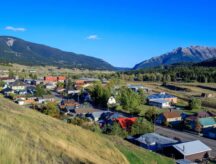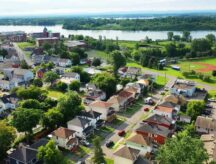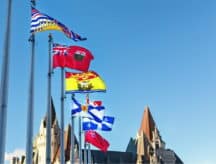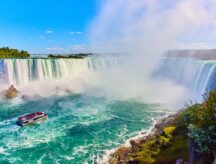Canada’s travel rules at a glance
Canada's first phase of easing travel restrictions begins today, July 5.
As of 12:01 a.m. Eastern, fully vaccinated travellers who are exempt from border restrictions can now skip quarantine. They also do not have to do day-eight testing. Those arriving by air do not need to stay at a government-authorized hotel to await their on-arrival test result.
Children and dependent adults who have not been vaccinated must still quarantine for 14 days. Even if they are arriving with fully vaccinated travellers. However, they do not have to quarantine in a hotel.
To be eligible for the new measure, fully vaccinated travellers must not have any symptoms of COVID-19. They still have to do pre-arrival and on-arrival testing. And like all travellers, they must submit all the necessary COVID-19 information to ArriveCAN before travelling. They will need a paper or digital copy of their proof of vaccination, and a quarantine plan.
Discover if You’re Eligible for Canadian Immigration
Those who are still testing positive after having recovered from COVID-19 must also provide a positive test taken between 14 and 90 days before their departure.
Travel restrictions are still in place for those who have not received a full dose of an approved vaccine. Although the border opened up to approved permanent residents, it continues to be closed to non-essential travel. These border restrictions are currently in place until July 21.
There are a number of exemptions to the restrictions. You may be exempt if you are a Canadian citizen, permanent resident, or a family member of one. Additionally, you can travel to Canada as a temporary foreign worker, or an international student going to an approved institution. Canada will also allow you to come for compassionate reasons, such as a funeral. There are a few more exemptions. The government offers a free online tool so you can see if you are allowed to cross the border.
Information for fully-vaccinated travellers
To be considered fully vaccinated, travellers must have received the recommended dose of a COVID-19 vaccine at least 14 days before entering Canada. Vaccines must be manufactured by a company that Canada has approved. For now, these include: Pfizer, Moderna, AstraZeneca/COVISHIELD, and Janssen (Johnson & Johnson). The government of Canada will update its webpage as more vaccines become approved.
Travellers may be vaccinated in any country, as long as they received a vaccine from Canada's "accepted" list. Proof of vaccination documents must be in English or French, or come with a certified translation.
Here is a list of the vaccines that are accepted and not accepted for full vaccination status in Canada.
Accepted vaccines:
- Pfizer (Comirnaty, tozinameran, BNT162b2)
- Moderna (mRNA-1273)
- AstraZeneca (Vaxzevria, AZD1222, Covishield)
- Janssen (Johnson & Johnson) - single dose
Vaccines not currently accepted:
- Bharat Biotech (Covaxin, BBV152 A, B, C)
- Cansino (Convidecia, Ad5-nCoV)
- Gamalaya (Sputnik V, Gam-Covid-Vac)
- Sinopharm (BBIBP-CorV, Sinopharm-Wuhan)
- Sinovac (CoronaVac, PiCoVacc)
- Vector Institute (EpiVacCorona)
- Other
Travellers who are not fully vaccinated
There is no change in rules for those who are not considered "fully vaccinated." They must still follow the mandatory quarantine and testing rules. If arriving by air, they must stay at a government-approved hotel to wait the results of their on-arrival COVID test.
Discover if You’re Eligible for Canadian Immigration
© CIC News All Rights Reserved. Visit CanadaVisa.com to discover your Canadian immigration options.
- Do you need Canadian immigration assistance? Contact the Contact Cohen Immigration Law firm by completing our form
- Send us your feedback or your non-legal assistance questions by emailing us at media@canadavisa.com







